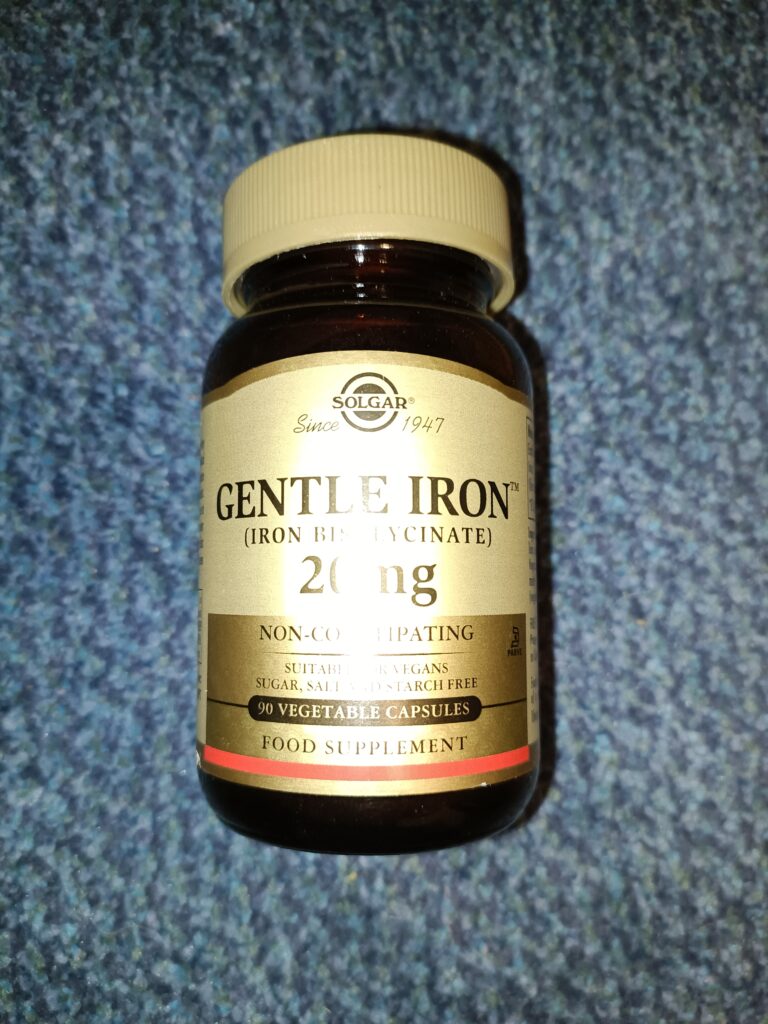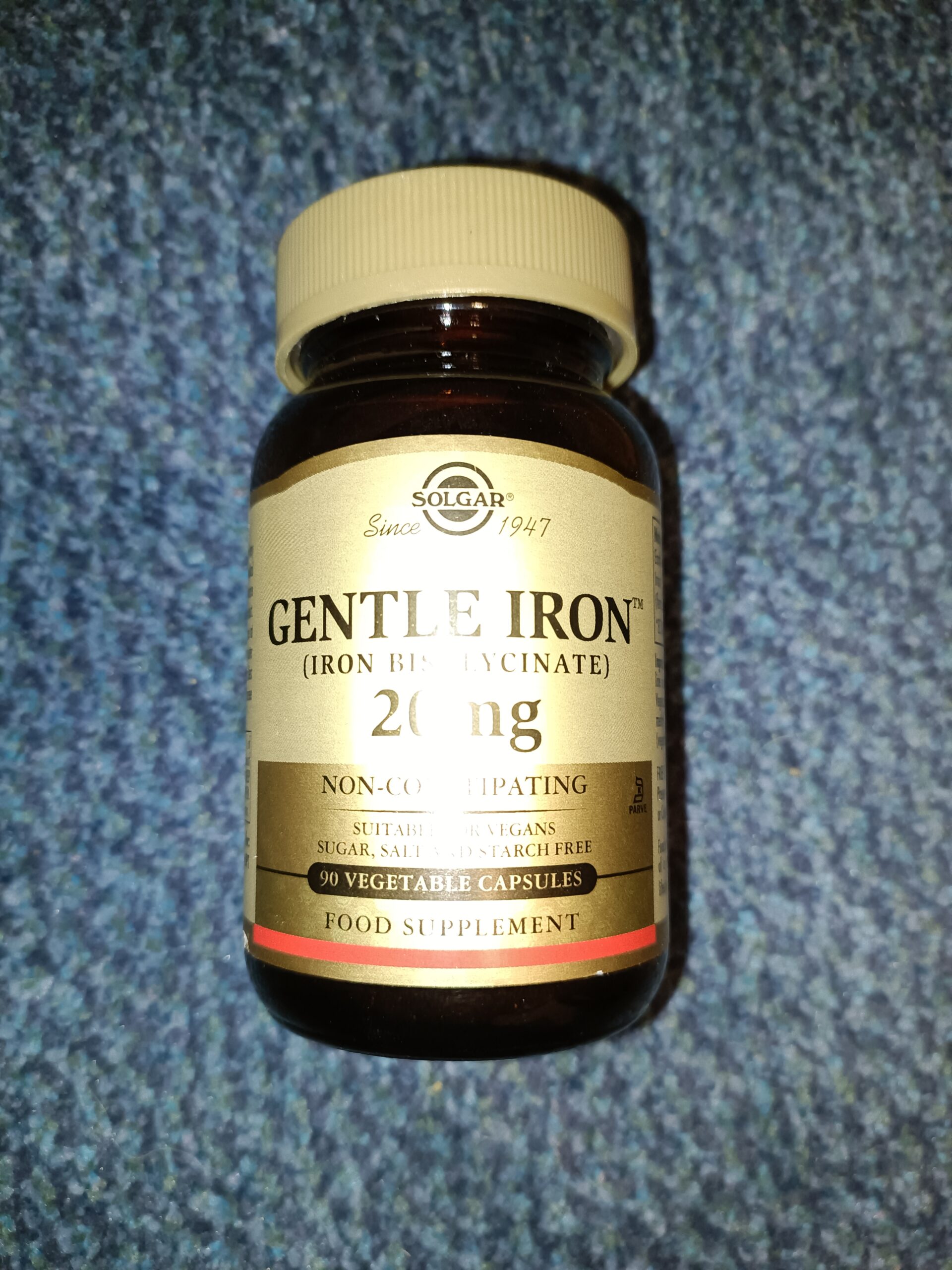Iron is an essential mineral that plays a crucial role in the human body, including carrying oxygen to the muscles, synthesizing DNA, and maintaining a healthy immune system. For runners, maintaining adequate iron levels is particularly important as they have higher oxygen demands due to their increased physical activity. Iron deficiency can lead to a condition called anemia, which can negatively affect athletic performance. Iron supplements are often recommended for runners who may struggle to get enough iron through their diet alone.
Benefits of Iron for Runners
Benefits:
- Improved Athletic Performance: Iron supplements can improve athletic performance by increasing oxygen delivery to muscles, which can reduce fatigue and improve endurance.
- Increased Energy Levels: Iron supplements can increase energy levels by helping the body produce red blood cells that carry oxygen throughout the body.
- Improved Recovery: Iron supplements can aid in the recovery process by supporting the immune system and reducing muscle soreness and inflammation.
Limitations of Iron for Runners
Limitations:
- Side Effects: Taking too much iron can lead to nausea, constipation, and other gastrointestinal issues. It is important to consult with a doctor or a registered dietitian before starting iron supplements to determine the appropriate dosage.
- Interference with Absorption of Other Nutrients: Iron supplements can interfere with the absorption of other nutrients such as calcium and zinc. It is important to take iron supplements separately from other supplements or medications that may affect its absorption.
- Risk of Iron Overload: Taking too much iron over time can lead to iron overload, a condition in which excess iron builds up in the body's organs and tissues. Iron overload can lead to serious health problems, so it is important to take iron supplements only as recommended by a healthcare professional.
Summary of Iron
Overall, iron supplements can be a beneficial tool for runners to improve their athletic performance, energy levels, and recovery. However, it is important to consult with a healthcare professional before starting iron supplements to determine the appropriate dosage and to monitor iron levels to avoid potential side effects or complications.

Suggested doses of Iron
The appropriate dosage of iron supplements for runners can vary depending on several factors, including age, sex, and individual iron needs. The recommended daily intake of iron for adult males is 8 milligrams per day, while adult females require 18 milligrams per day. However, runners may require higher amounts of iron due to increased physical activity and iron loss through sweating.
According to the National Institutes of Health (NIH), the recommended daily dose of iron for adults is typically between 8 and 45 milligrams per day, depending on individual iron status and needs. For runners who have been diagnosed with iron deficiency anemia, higher doses of iron supplements may be necessary to correct the deficiency. In these cases, healthcare professionals may recommend doses of up to 200 milligrams per day, typically divided into two or three smaller doses.
It is important to note that taking too much iron can lead to iron overload, which can be harmful to the body. Therefore, it is essential to follow the recommended dosage provided by a healthcare professional and to avoid taking iron supplements in excess.
References for suggested doses
References:
- National Institutes of Health. Iron. https://ods.od.nih.gov/factsheets/Iron-HealthProfessional/
- American College of Sports Medicine. Nutrition and Athletic Performance. https://www.acsm.org/docs/default-source/files-for-resource-library/nutrition-and-athletic-performance.pdf?sfvrsn=40d88ab8_4
- Peeling, P., Dawson, B., Goodman, C., Landers, G., Trinder, D. (2008). Athletic induced iron deficiency: new insights into the role of inflammation, cytokines and hormones. European Journal of Applied Physiology, 103(4), 381-391. https://doi.org/10.1007/s00421-008-0725-3
As with any supplement, it's important to talk to your doctor before taking Iron to ensure that it is safe and appropriate for you. They can also provide guidance on the appropriate dosage and help monitor for any potential side effects or interactions with other medications.
Buying Iron Supplements
Scientific Study References
Several studies have investigated the effectiveness of iron supplementation for improving athletic performance in runners and other endurance athletes. Here are a few key studies and their findings:
- Peeling, P., Sim, M., Badenhorst, C., Dawson, B., Govus, A., Abbiss, C.R., Swinkels, D.W., & Trinder, D. (2014). Iron Status and the Acute Post-Exercise Hepcidin Response in Athletes. PLoS One, 9(6), e93002. https://doi.org/10.1371/journal.pone.0093002
This study found that iron-deficient endurance athletes who took iron supplements experienced improvements in exercise performance, including faster times in a 10-km time trial.
- Beattie, J.H., & Kwun, I.S. (2014). Is Exercise Good for Iron Status in the Absence of Iron Deficiency? Journal of Nutrition and Metabolism, 2014, 523945. https://doi.org/10.1155/2014/523945
This review article examined several studies on the relationship between exercise and iron status. The authors concluded that regular exercise can increase iron utilization and improve iron status in individuals who are not iron deficient.
- Friedmann, B., Weller, E., & Mairbäurl, H. (2001). Effects of Iron Repletion on Blood Volume and Performance Capacity in Young Athletes. Medicine and Science in Sports and Exercise, 33(5), 741-746. https://doi.org/10.1097/00005768-200105000-00010
This study found that iron supplementation in iron-deficient adolescent athletes increased blood volume and improved endurance performance, as measured by maximal oxygen uptake and time to exhaustion on a treadmill.
Consult Your Healthcare Professional
Overall, these studies suggest that iron supplementation can be effective in improving athletic performance in runners and other endurance athletes, particularly those who are iron deficient. However, it is important to note that individual iron needs can vary, and iron supplementation should only be taken under the guidance of a healthcare professional.
